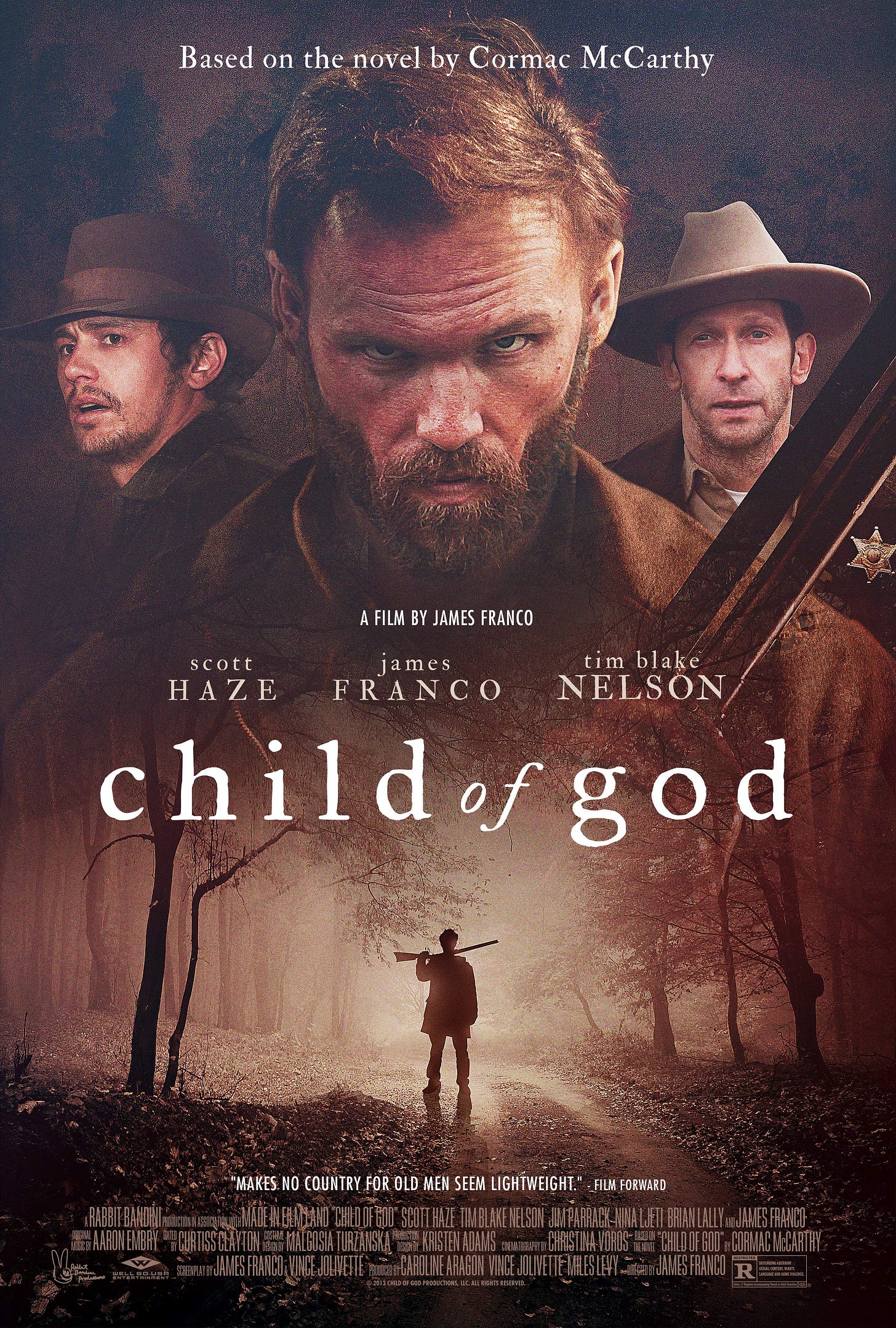
If you’re new here, this is Binge, the section of Kindling where I write about the stories I’m reading (or watching, or listening to). Please comment, recommend, criticize. I love book discussions.
Until his death, I had never read any of his works. This month, I read two: Child of God and No Country for Old Men.
I’m in awe of his writing, truly. There were a couple of things I was surprised by, but the main thing: I didn’t realize how dark his stories were. It got me thinking about the strange lines between genre and literature. (Some of you more educated can jump in here to outline those differences if you want to.)
Child of God in particular is a straight up horror novel. The story of a social outcast, Lester Ballard, who stumbles upon his only avenue to human connection through violence and necrophilia.
After he discovers a couple dead in their car, he steals the woman’s body and keeps her in his remote cabin. That step into darkness pulls him into total depravity. What follows that fateful day is a string of murders as he attempts to fill his despicable compulsion.
Knowing that, take this early line from the book where McCarthy introduces Ballard.
To watch these things issuing from the otherwise mute pastoral morning is a man at the barn door. He is small, clean, unshaven. He moves in the dry chaff among the dust and slats of sunlight with a constrained truculence. Saxon and Celtic bloods. A child of God much like yourself perhaps.
-Cormac McCarthy, Child of God (emphasis mine)
McCarthy has a wonderful way with words, particularly when describing landscapes. That beauty, the wonder of the natural world, stands in sharp contrast to the grotesque acts of the humans in this book.
Each leaf that brushed his face deepened his sadness and dread. Each leaf he passed, he’d never pass again. They road over his face like veils, already some yellow, their veins slender like bones where the sun shone through them. He had resolved himself to ride on for he could not turn back and the world that day was as lovely as any day ever was and he was riding to his death.
-Cormac McCarthy, Child of God
The leaf descriptions, “veins slender like bones,” are among the most beautiful I’ve ever read. The juxtaposition to Ballard’s horrific crimes make his evil that much darker.
But of course, that’s true of real life isn’t it? In a memoir written by a holocaust survivor (I can not remember if it was All But My Life or The Hiding Place), I distinctly remember reading of a snowy, barefoot march near the end of the war. The writer looked up, and saw the stars in the sky, how the forest around functioned with no knowledge of the atrocities that were occurring all over Europe. The strange otherness of mother nature, somehow separated from our own unique cruelty in those moments, brought a strange sense of peace.
Take one of the most beautiful areas of the country, Appalachia. That natural beauty persists unaware of Fentanyl overdoses and childhood poverty. The desolation of humanity is not always mirrored in the world around us, especially outside of cities, twisted metal and machine, places of our own making.
James Franco made a film based on this book, and he asked McCarthy why he wrote it. McCarthy, ever the private writer, stated he didn’t remember, but was sure it was for some silly reason.

His approach to writing was not artful in the gushing, introspective way that I write about his book. He approached his characters, not as some lesson to humanity, but as fact. These people exist. The Ballards of the world are out there. They fill prisons and state hospitals, neighborhoods and churches, and we will probably never quite know why they are what they are.
You think people was meaner then than they are now?” the deputy said. The old man was looking out at the flooded town. “No,” he said. “I don’t. I think people are the same from the day God first made one.”
-Cormac McCarthy, Child of God




I love your observation that McCarthy writes horror. He truly does. And I think you might have answered your own question about the one difference between "literary" and "genre" horror. I don't think genre horror pauses the plot for poetic moments as often as McCarthy does. I think "literary" fiction wants to teach us new ways to look at familiar things and concepts while "genre" usually strives to fulfill certain expectations. But before people yell at me, I'll add that I think there's plenty of fiction that purports to be literary (and wins critical acclaim and awards) but is actually genre work that fulfills political and cultural expectations. And there is plenty of literary horror that defies expectations.
I recommend Outer Dark next. It’s another swift and brutal little fable.